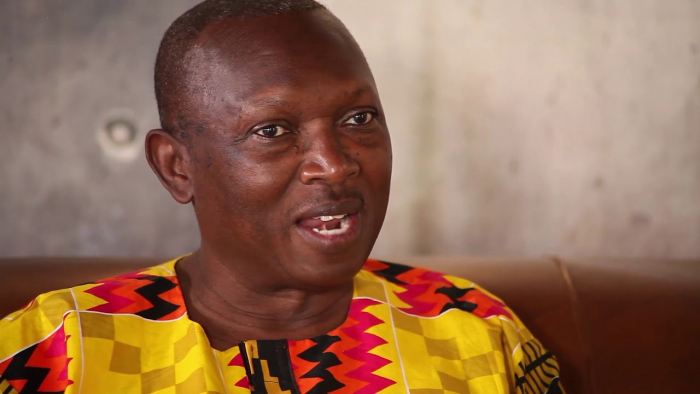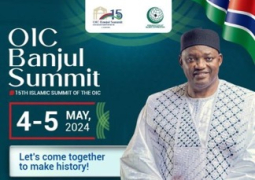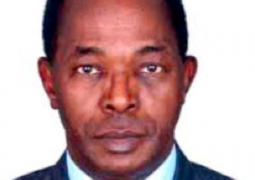
As the Coronovirus (COVID-19) ravages lives, livelihoods, and spreads across the world, it also reveals along the way deep social and economic disparities in both the major economies: (USA, Germany, Britain, France, Italy, etc) and so-called emerging ones. In the United States, it has brought to the fore once more centuries-old institutionalized racism the consequences of which are disproportionate death counts in both the black and hispanic communities. Claiming more lives of those over sixty-five years old with pre-existing medical ailments, COVID-19 has also killed frontline responders from these communities who are disproportionately represented at the bottom rungs of the social, economic and professional ladders.
A combination of poor, low education, segregation in urban centers, and general lack of opportunity have pushed many frontline workers into low- paying and dangerous jobs; while underclass, unemployed, underemployed and barely literate black and hispanic youth eke out an existence in the economy's underbelly of gangs, illicit drugs, and prostitution. Some, on the other hand, seized education and other opportunities, and experienced degrees of upward mobility. Yet, upwardly mobile people from these communities suffer the "model-minority." syndrome. They remain at the precarious intersection of rejection from their own ethnic community, and discrimination, bigitory, and micro-aggressions from the larger white majority population.
"Meritocracy," the ideology that maintains that anything is achievable in the U.S., only if you work hard(er), is the glue that maintains and rationalizes this deeply racialized, gendered and hierarchical system of exploitation and abuse of underclass blacks. State-sponsored repression and violence, as we witnessed in the last two weeks in the U.S., then become the means by which the judicial system keeps "minorities" in check. Economically marginalized and limited to poor paying jobs, inner-city youth find it difficult to make enough to support a family and many are compelled to work several low-paying jobs to make ends meet- if they do at all. Others resort to crime, and ultimately land in prison. Prison, rather than rehabilitation, frustrates, instead, resulting in violence visited on loved ones, and gang-bangers.
No where is racism in the U.S. more ingrained than in the criminal justice system where "minorities," generally, do not receive justice in court. This has resulted in the disproportionate representation of blacks, and hispanics in the "prison-industrial-complex," where many are falsely accused, poorly represented and more likely than whites to be arrested, imprisoned and executed. This is, "The New Jim Crow." Similar to slavery, "Jim Crow" reduced black Americans to an exixtence slightly better than slavery. One still worked for the white-master. Its modern variant has the very effect of keeping many underclass individuals, and blacks, in particular, in prison, over-policed, economically depressed and food-desert communities. COVID-19 lay bare for the world to see the insidious structures of deep-rooted discrimination in both the U.S., and Britain. First-responders and auxiliary staff, who typically hail from minority communities bore the brunt of casualties in both countries, as well as in welfare Scandinavian states.
Racism, inequality and poverty alongside rising deaths from COVID-19, in black, hispanic, and native Amernican communities, coincided with George Floyd's murder to precipitate a multi-racial, multi-generational upriisng that has not been seen in the United States in recent decades. Violence against blacks in the U.S., is as old as the country itself. From slave revolts, lynching mobs, murderous white-mob violence, as in the Tulsa, Oklahoma race massacre of May 31, 1921, almost a century ago, to the modern civil-rights movement of the 1960s, and to the present, little by way of fundamental structural and attitudinal change toward blacks has occurred in the U.S. In fact, little is likely to change until white America faces this difficult and bloody part of its history. If not, after the current outrage, proclamations for racial justice, and equality have been expressed, and, especially after media coverage has subsided, as in past uprisings, things will more than likely go back to "normal." The status-quo will remain until another outrage jolts our collective conscience. White America is, in large measure, unwilling to come to terms with its history of chattel slavery and stigmatization of blacks, and all that came with it after.
Today, I cried for America. I cried for, and because of George Floyd's grusome murder, as he called out for his mother and begged for water: "I can't breath." I cried for America, family, friends and colleagues. It was Floyd yesterday; yet, it could be anyone of them the next day, next week, next month, or next year. I also cried for, and because of Momodou Lamin Sisay, a Gambian killed by police in Atlanta, Georgia. When will this mayhem against black people stop in the United States, and around the world where black lives carry little value and are disposable? When will the fear, negative perceptions of blacks, and hispanics,(as "dangerous criminals," who must be quarantined and contained in inner-cities), end?
The spontaneous uprisings in over forty U.S. cities, as well as fires in several others, and acts of solidarity worldwide with African Americans, in particular, reechoes an old, clear, and bold message: A nation divided cannot stand, and racism in all its guises must end. Recent violent uprisings alongside peaceful ones coming as they do after the COVID-19 Pandemic, are a clarion cry for social, economic and environmental justice in the U.S., and globally. They highlight a global divide between the "rich," and "poor," and once more call for a new global economic order, and a humane and human-centered economic "globalization." Forced-appropriation ("looting") of merchandise by some protesters must be placed in context. It is the result of pent-up frustration, poverty and generalized deprivation that has lingered for centuries from the time of Re-construction, follwing slavery, to the present, and hardly addressed by public policy. In other words, the spontaneous uprisings and "looting" are the outcome of long endured, ongoing and persistent injustices, hence "structural violence," and economic "globalization," run-amok.
COVID-19 made it dramatically clear that economic and military power mean little in the face of global pandemics. This pandemic brought all nations and especially "rich" nations, to their knees with soaring death counts, plummeting economies, rising unemployment- sending policymakers scrambling for answers. COVID-19, I hope will have compelled us all to re-evaluate our social and economic hierarchies, and values and come to terms with what's and who's important, as a global community of nations. This is more so for the U.S., and Britain, where centuries of institutional racism, disregard for black-lives and genocide-like social, judicial, economic and health policies have rained havoc on black communities.
Remedies to the legacy of slavery, modern-day Jim-Crow policies, and structural racism will take serious, dedicated and sustained effort that include reparations for blacks. Brown University, among other ivy league institutions, began this process. Yet, these efforts must go further, deeper and certainly beyond financial remedies. They must seek to systematically dismantle through education the edifice of white-supremacy, which lies at the core of American society, and the education system. There should be little room, or tolerance for political, cultural platitudes and myths- these difficult racial and economic issues pertaining to black and other "communities of color," must be contested, and confronted head-on.
Change, if it is to be meaningful, must also saturate the criminal justice system and all other systems of oppression, to make them just. White folks in the U.S., and Britain, must recognize unearned "white privilege," and begin the difficult process of confronting them. This is, in part, because the current status-quo despite the best of rationalizations by pundits and public intellectuals remains deeply flawed. The burning cities of America are yet another wakeup-call, and make it all too clear that black lives and white lives and their respective security are inseparable. And, that suburbia no longer provides sanctuary from ills from inner-cities. In fact, the inner-city has crept into suburbia. A case in point is the heart-wrenching television images of burning American cities, sounds and echoes of fear, anguish and despair, and the sting of teargas-burn in the eyes and voices of protesters.
The average white American is fair-minded, kind, God-fearing, and hard-working. These attributes, among others, are what make America great, not Donald Trump's reimagined, or attempts to remake America. Yet, as much as he added to the spread and deaths of COVID-19, in a bid for a second term, Trump is but a manifestation and symbol of America's deep-rooted legacy of white-superemacy. There is hope: Few countries, and people, if any, possess the grit to change, and fewer yet are as courageous to see them through. These are what attract(ed) millions to America's shores, as no country is more diverse and welcoming of immigrants in search of opportunity. To save this Union from the precipice and prevent it from plunging further into turmoil and revolt; "change is got to come." This is an epic moment and opportunity in America, and for Americans, to address centuries-old divisions, prejudice, hate, and bridge the divide between white America and black America. Until then, the U.S., will be riveted by periodic waves of police violence and revolt.
Abdoulaye Saine is professor (emeritus) of political science, Miami University, Oxford, Ohio.



